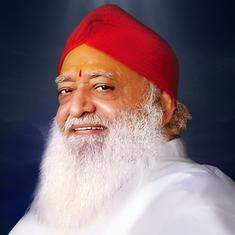US elections: Risk of ‘civil unrest’ during days leading up to results, warns Mark Zuckerberg
Zuckerberg said the week before the results would be a test for Facebook after four years of work by them to root out foreign interference.

Facebook Chief Executive Officer Mark Zuckerberg on Thursday warned of a potential “civil unrest” in the United States as votes are tallied for this year’s presidential elections, Bloomberg reported. Zuckerberg said the week before the results would be a “test” for Facebook.
“I’m worried that with our nation so divided, and election results potentially taking days or weeks to be finalised, there’s a risk of civil unrest across the country,” the chief executive officer said on a conference call to discuss Facebook’s quarterly earnings. “Given this, companies like ours need to go well beyond what we’ve done before.”
To limit voter misinformation, Facebook earlier this month said that it would ban new political ads from appearing on its site in the week before the election day. The company said it would act quickly against posts that tried to dissuade people from voting.
“For example, this would include calling a method of voting inherently fraudulent or corrupt, or using isolated incidents of voter fraud to delegitimise the result of an election,” said Rob Leathern, a director of product management at Facebook, in a tweet on October 1.
But experts said that political ad publishers can sidestep the ban by getting the advertisements loaded into Facebook prior to the deadline, and then disseminating them to a wider audience later, according to AFP.
Zuckerberg on Thursday said that this year’s elections were also a moment of assessment for Facebook after four years of work by the social network to root out foreign interference, voter suppression and calls for violence.
“Next week will certainly be a test for Facebook,” he said. “Election integrity is and will be an ongoing challenge. And I’m proud of the work that we have done here.” Zuckerberg added that his focus on election safety will continue after next week. “We will keep anticipating new threats, evolving our approach.”
Facebook has faced intense criticism since the 2016 election, when the social media platform was accused of being used by Russian operatives to spread disinformation and destabilise the American electorate. Zuckerberg said the company has come a long way since then, taking down 100 similar coordinated networks from Russia, China, Iran and elsewhere, and has built better systems to detect fake identities.
The social media company’s policies on hate speech and misinformation have also been under intense scrutiny in India.
On August 14, an article published in The Wall Street Journal alleged a nexus between Facebook and the Bharatiya Janata Party and claimed that the social media platform was opposed to the idea of removing incendiary posts by the party leaders, warning that this could hurt the company’s “commercial interests” in India. Company’s public policy director for India at that time Ankhi Das had also not revealed that Facebook had deleted fake news pages connected to the saffron party, according to the report. Das resigned earlier this week.
In September, a data scientist who was fired from Facebook also released a memo detailing how the platform was used to sway public opinion and spread misinformation. The former Facebook employee said the company often focused on big-picture problems as it ignored many individual cases of outright political manipulation.
Read more: Delhi Assembly elections: Sophisticated network worked to influence polls, says ex-Facebook employee









